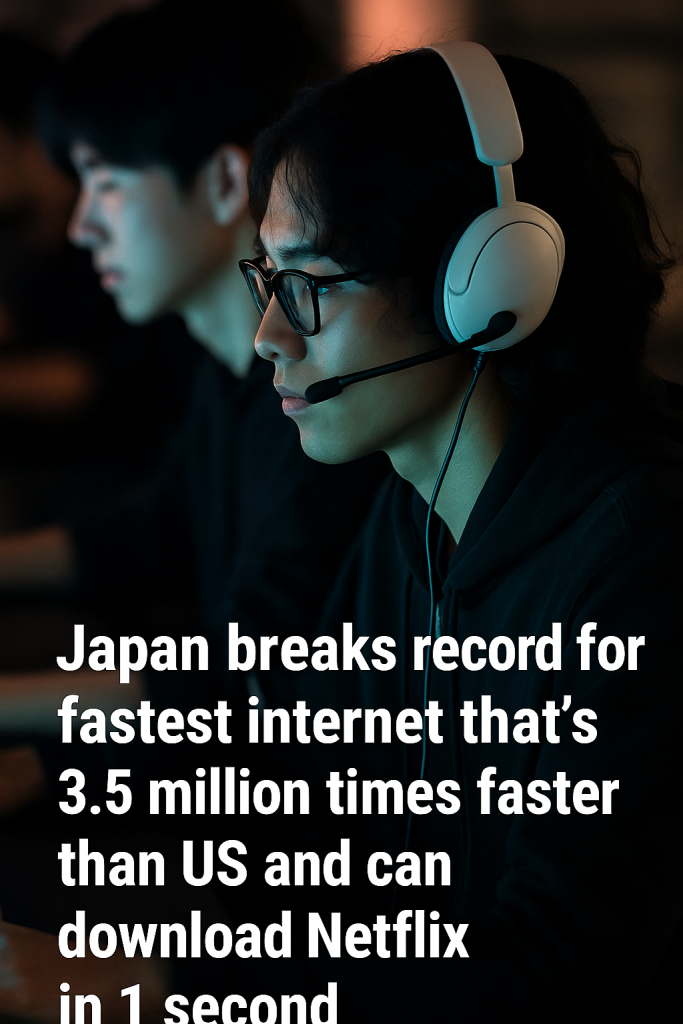In an unprecedented technological breakthrough, Japan has set a new world record for internet speed that leaves other countries far behind. Reports emerging in 2024 highlight Japan’s latest achievement: an internet connection that operates at speeds 3.5 million times faster than the average American broadband, capable of downloading an entire Netflix movie in just one second.
This astounding leap forward was unveiled by a team of Japanese engineers, who developed a cutting-edge optical fiber technology using ultra-low loss fiber optics combined with advanced quantum signal processing. The new system achieves data transmission rates previously thought impossible, surpassing the current highest benchmarks in global broadband speed.
To put the speed into perspective, the US average internet speed currently hovers around 200 Mbps (megabits per second), while Japan’s new record boasts multi-terabit per second (Tbps) capabilities. Specifically, the newly tested fiber network demonstrated a peak speed exceeding 1,000 Tbps, effectively making a typical 2-hour HD Netflix movie available to download within a single second — an innovation that could radically transform internet usage worldwide.
The technology hinges on revolutionary advancements in photonics, allowing data to be transmitted using significantly denser wavelengths of light through ultra-pure glass fibers. By optimizing both the physical medium and the data encoding techniques, Japan’s researchers managed to greatly reduce latency and signal degradation, pushing internet speeds far beyond any existing commercial system.
This breakthrough arrives at a pivotal moment when digital connectivity is more essential than ever for streaming, remote work, gaming, and emerging technologies like augmented reality and virtual reality. Japan’s achievement not only elevates the country’s status as a technology leader but also redefines the global standards for internet infrastructure.
Experts believe the implications extend beyond consumer convenience. Such ultra-high-speed networks can accelerate scientific research, support large-scale data centers, and enable faster advancements in AI and machine learning by providing rapid access to enormous data sets. Furthermore, this could drastically improve communication in smart cities, autonomous vehicle technologies, and healthcare through real-time telemedicine applications.
Though this record-breaking speed is currently limited to experimental setups and laboratory conditions, the Japanese government and private sector partners have announced intentions to pilot commercial rollouts in select urban areas over the next few years. If successful, this could inspire a global race to upgrade fiber networks, pushing other nations to invest heavily in next-generation infrastructure to keep pace.
Meanwhile, consumers worldwide may soon dream of downloading movies, games, and entire software suites almost instantaneously, reshaping the expectations for digital content delivery.
The question now is how quickly this ultra-fast internet can become accessible on a wide scale. While cost and implementation challenges remain significant hurdles, Japan’s record-breaking speed marks a bold glimpse into the future of connectivity — one where waiting for downloads becomes a thing of the past.
As other countries analyze Japan’s success, the era of gigabit internet might soon be dwarfed by terabit speeds, changing the landscape of the internet forever.



